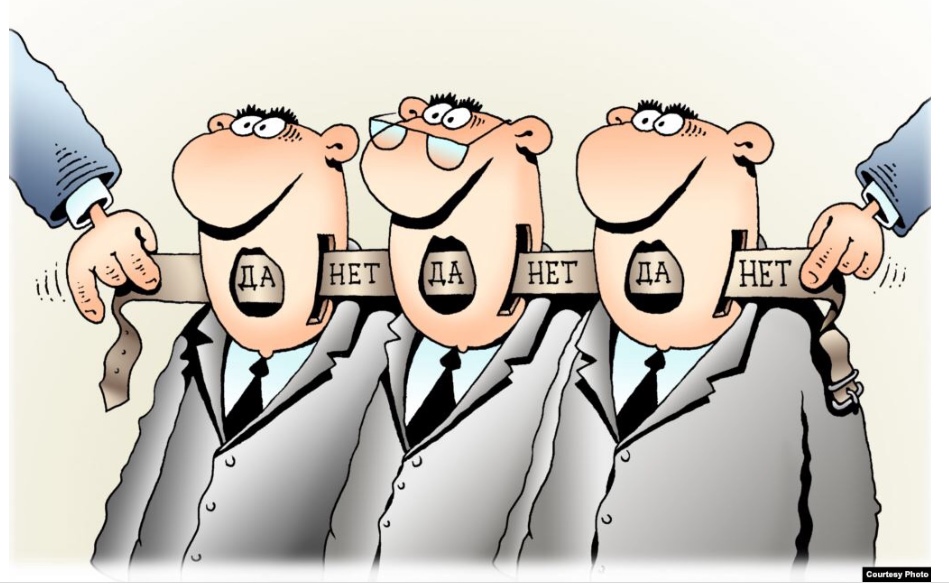“An exceptionally corporate issue”. This is how the Kremlin explained the dismissal of journalists from the Kommersant newspaper for publishing an article about Valentina Matviyenko and Sergei Naryshkin [the paper wrote about possible dismissal of Matviyenko, Chair of the Federation Council, the upper chamber of the Russian parliament, and her replacement by Sergei Naryshkin, head of Russia’s Foreign Intellgent Service) However, this explanation refers, certainly, not only to relations within the newspaper’s editorial office. A corporation – this is how the Kremlin authorities imagine the Russian state. Therefore, the dismissal of Kommersant journalists represents a landmark event.
The essence of this event is that in the situation of a power struggle between power groups which has been gaining momentum, it is indicative to silence the media, to intimidate journalists – so that they don’t meddle in other people business. Any more or less significant participation of society in determining the fate of the country in the Putin system is not envisaged, and, therefore, professional political journalists are not needed and even dangerous. The editorial office of the newspaper blocked their passes, they were escorted out of the office under guard and closed access to their accounts on their work computers.
Something like this happened 19 years ago, when the Kremlin considered the NTV channel [independent private television channel] team unnecessary and dangerous for Putin. Then the Kremlin called the elimination of freedom of speech a “corporate issue” of Gazprom [which was one of the owners of the television channel], now they say that this is the “corporate issue” of [oligrach and owner of the paper] Alisher Usmanov.
The Russian state-corporation perceive people not as citizens, but as hired employees of this corporation, who should obediently only follow the instructions of their superiors. The corporation needs its controlled channels for propaganda, different kinds of information leaks to the media and provocations. In this context, reproaches addressed to the Kommersant journalists in the “ordered” nature of the publication seem only funny.
A problem in a corporate state is not solved by leaving one job and taking another one. Then, at the very beginning of the 2000s, all the television channels where the [sacked] NTV journalists tried to go – TV-6, TNT, TVS – were also closed… The problem is political: in modern Russia, journalism must serve the authorities, and the interests of society are not important for the corporation.
But only the society can change the corporate nature of the state, free it from the mafia, protect journalists, preserve and protect information sources that are important for the society – if it becomes a political actor. And this can be done only through a mass-scale political party representing the civil society.

Автор карикатуры: Игорь Кийко



